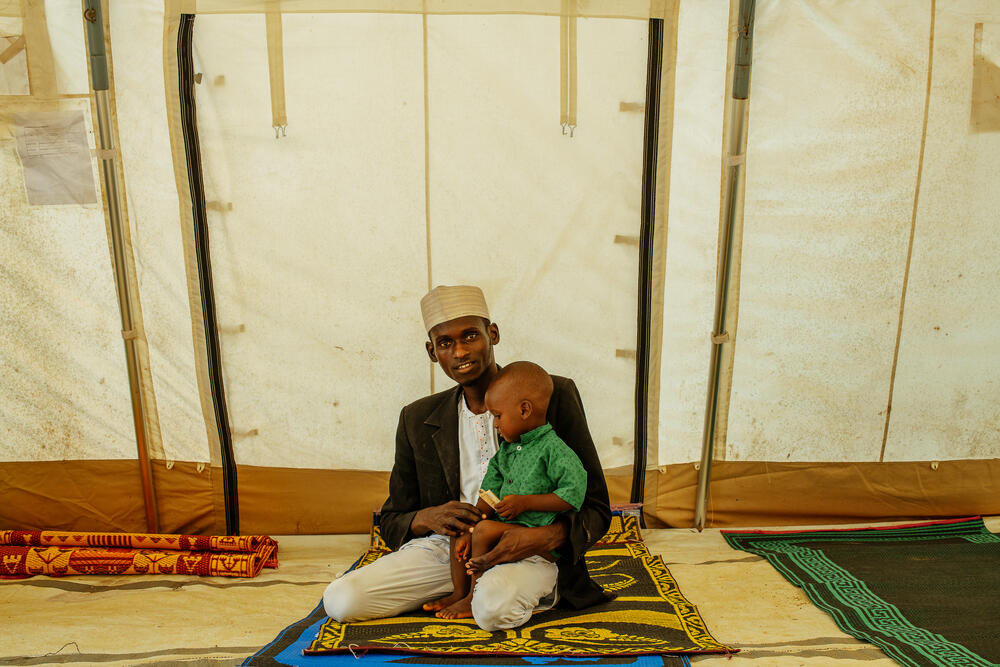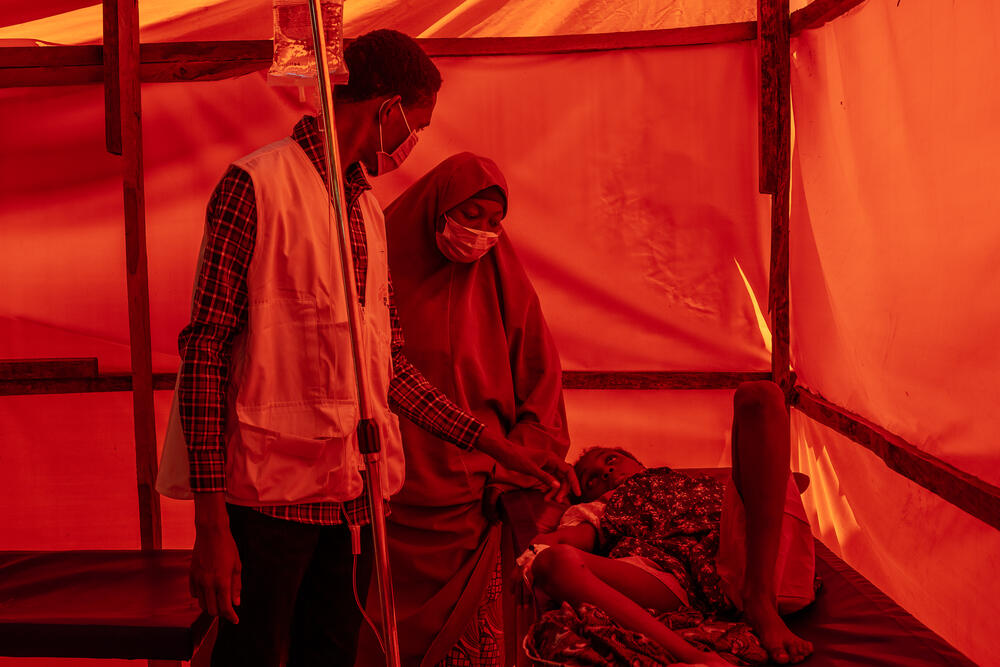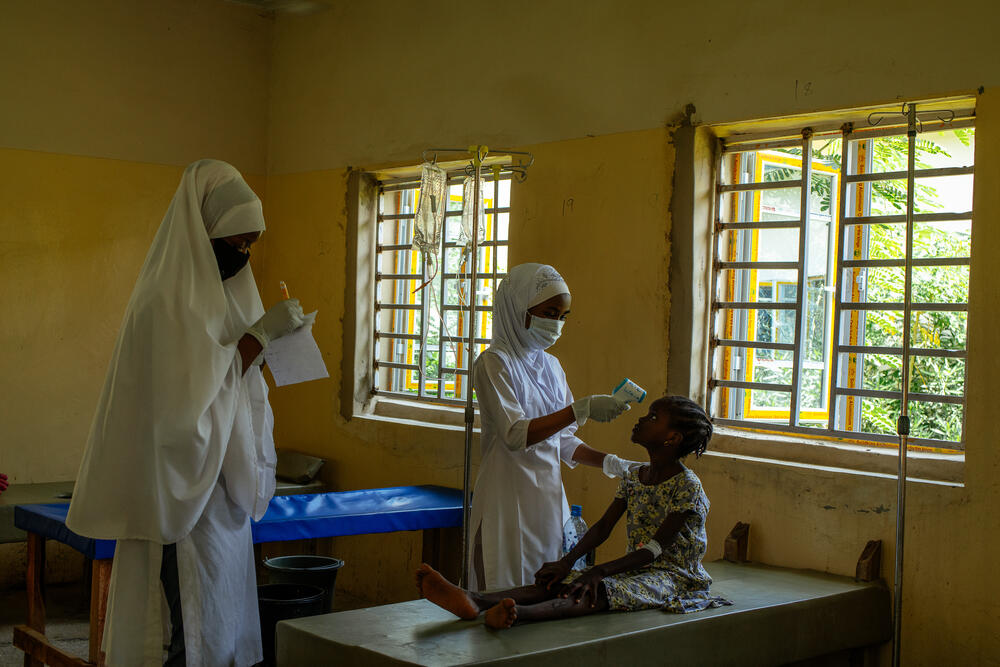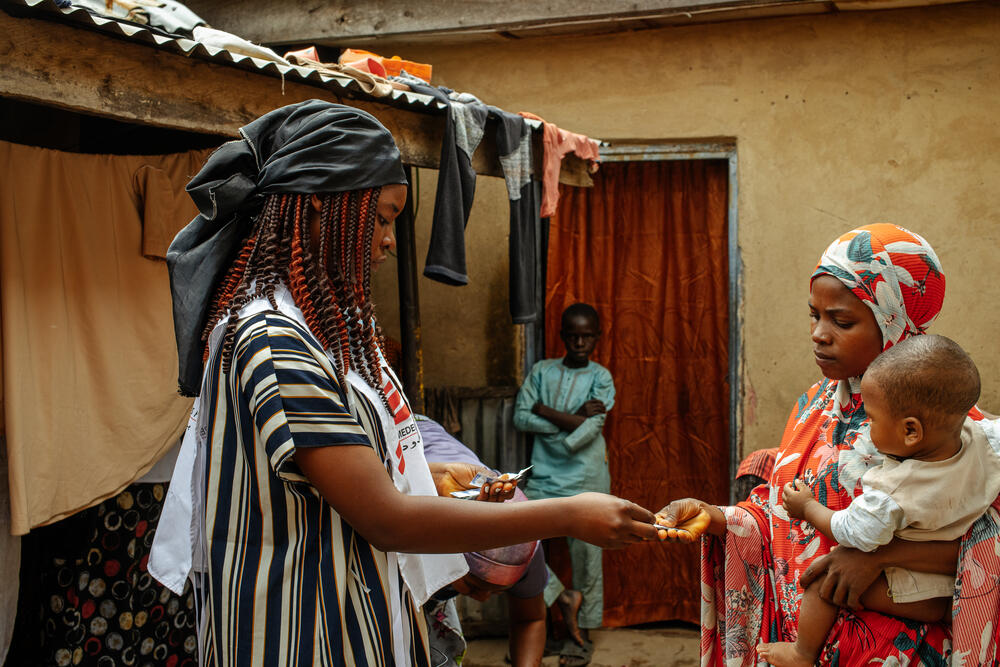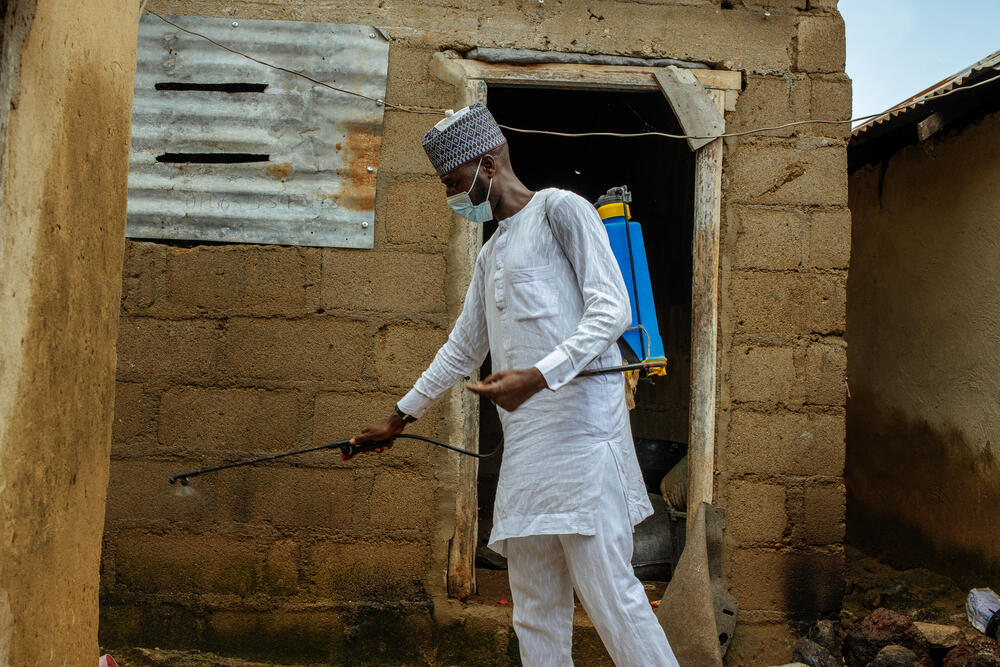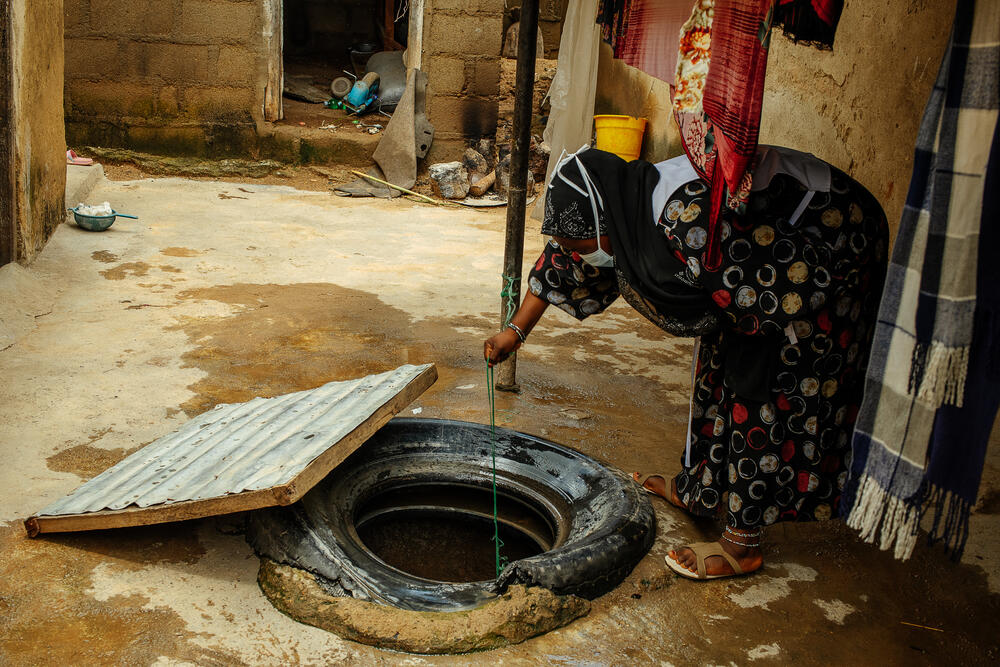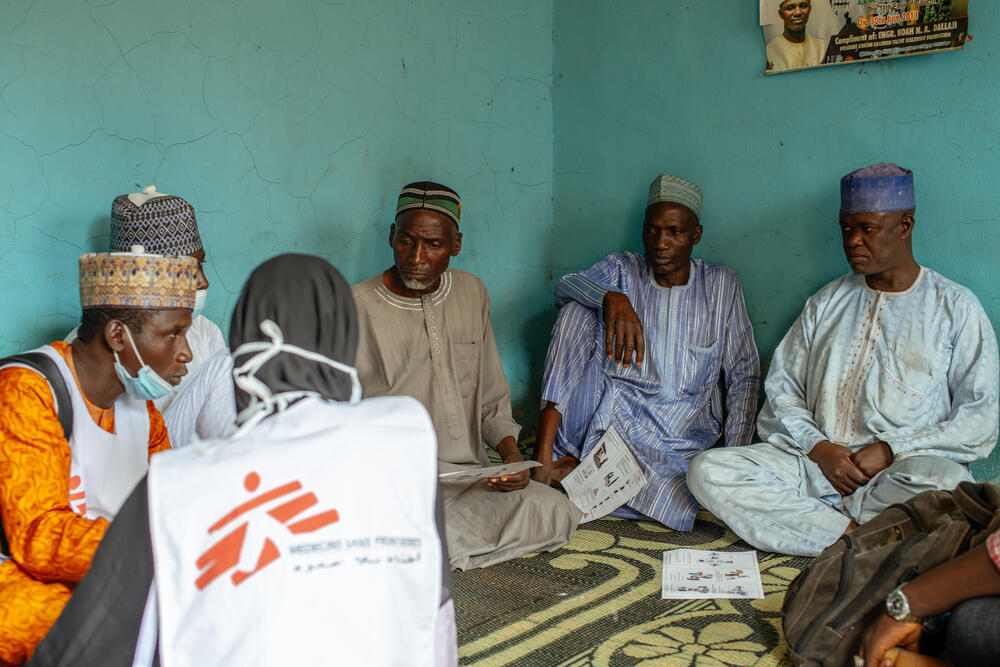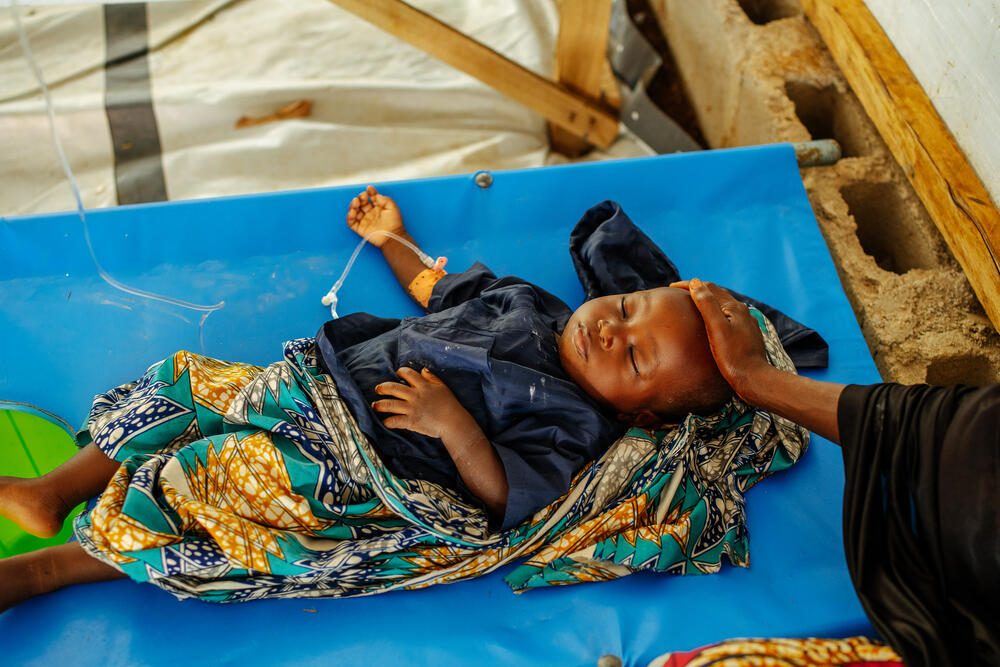Photostory: Inside Nigeria’s deadly cholera epidemic
More than 90,000 people have been infected in the country’s worst outbreak for a decade
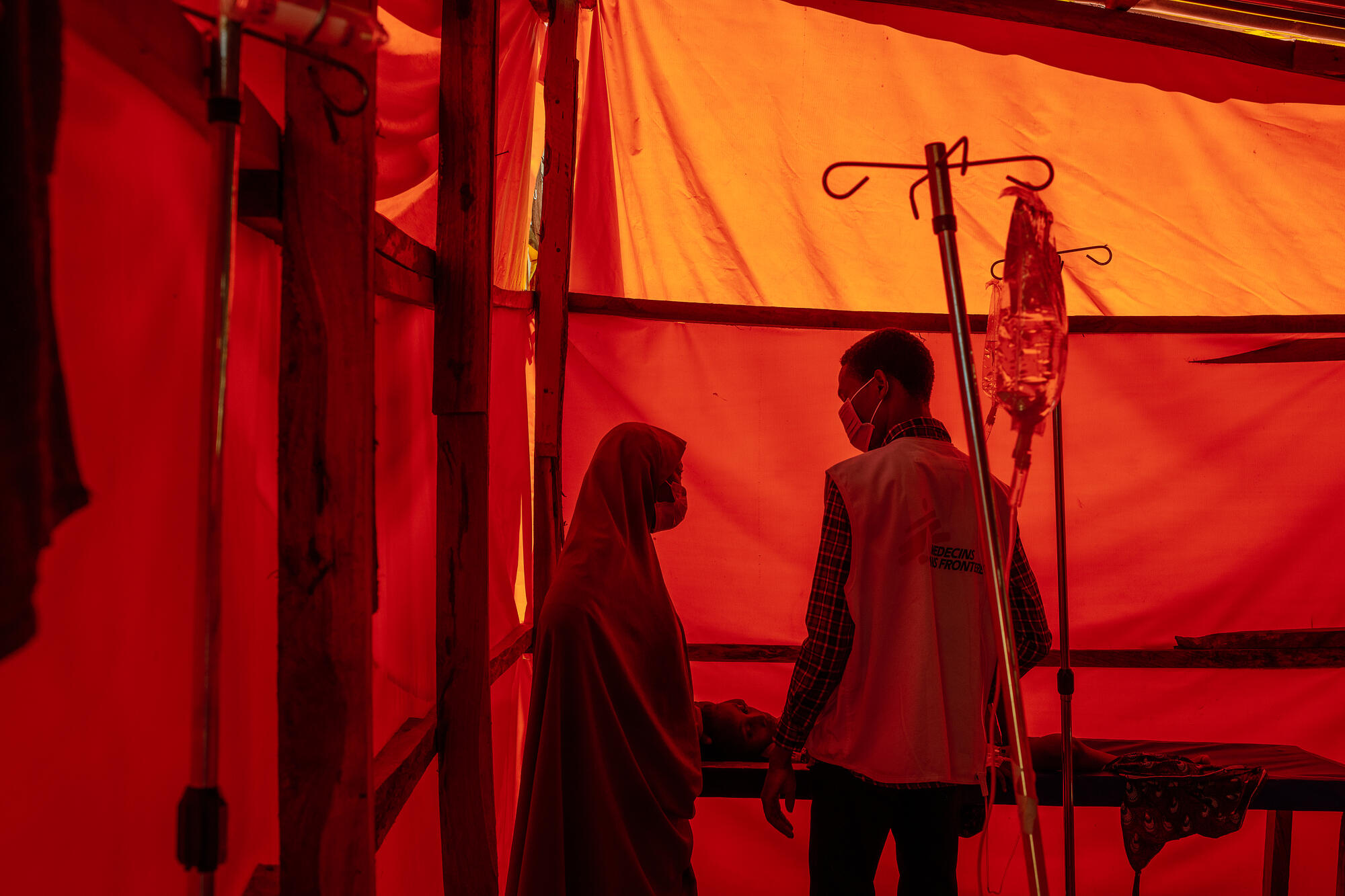
Nearly 250 miles northwest of Nigeria’s capital Abuja, two-year-old Mohammad Sheriff is recovering from cholera.
He sits with his father in a Médecins Sans Frontières / Doctors Without Borders (MSF) cholera treatment centre (also known as a CTC). This is Bauchi, the capital of one of the Nigerian states that's been hardest hit by the country’s worst cholera outbreak in a decade.
“He vomited twice and later started having diarrhoea,” says Mohammad’s father, who immediately recognised the symptoms as cholera.
“I told his mother that I'd take him to the hospital as we are constantly being informed through the radio [to do this].”
Cholera can be deadly, but, it is simple to treat.
In most cases, people in mild or moderate conditions usually recover through treatment with fluids and oral rehydration solution.
However, severely dehydrated patients may need to be admitted to a CTC and be given fluids intravenously.
Mohammed’s case was serious, but after two days receiving medical care in the CTC he is now in the recovery ward – the last step before being discharged and returning home.
“If we had not come when we did, the situation might be very bad,” his father says.
Cholera is endemic in Nigeria, but the outbreak this year has been especially severe with more than 90,000 people infected so far.
While nearly all of Nigeria’s 35 states have reported cholera cases in 2021, the vast majority have been concentrated in the six northern states of Bauchi, Kano, Jigawa, Zamfara, Sokoto and Katsina.
People living in this region are already extremely vulnerable – hundreds of thousands have been displaced from their homes by conflict and violence, and most live in conditions with poor sanitation and no safe drinking water.
MSF emergency teams are working alongside the Nigerian Ministry of Health to try and bring the spiralling outbreak under control, opening six cholera treatment centres across the region and treating more than 20,000 patients so far.
In many places, violence and insecurity is another challenge.
In Zamfara state, many patients arrive in a critical condition having delayed coming for treatment earlier out of fear of encountering danger on the roads.
Despite this, MSF teams were still admitting more than 100 patients daily at some points in August, underscoring the severity of the outbreak and the determination of patients to get treatment.
“Vulnerable populations in Nigeria were already in a dire situation,” says Dr Simba Tirima, MSF country representative in Nigeria.
“Cholera has added to a complex web of medical and humanitarian vulnerabilities, coming on top of heightened insecurity, a chronic state of acute humanitarian and medical needs, and the direct and secondary impacts of COVID-19.”
Medical care where it's needed most
Help us care for people caught in the world's worst healthcare crises.
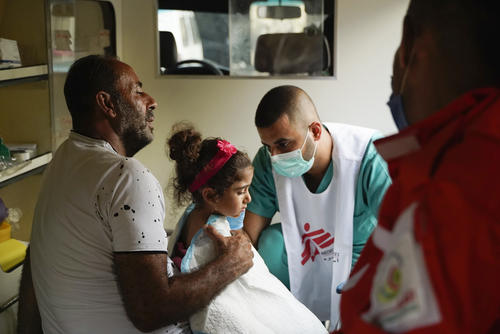
At the peak of the outbreak in July, more than 7,500 new cases per week were being reported and many medical facilities were at risk of being overwhelmed.
“We had to admit 80 or 90 patients during a single work shift,” says Anas Al-Hassan, a nurse at MSF’s CTC in Kano.
“There was no time for rest because of the number of patients. The work at that time was overwhelming.”
“The patients would come devastated, their caregivers worried they might not make it,” says Philip Esenwa, MSF medical activity manager for the Nigeria Emergency Response Unit.
“Some were so weak they that they couldn’t speak.”
“We used to have patients who were brought in dead,” says MSF nurse supervisor Mustapha Mahmud, who also works at the Kano CTC.
The challenges were immense in cities such as Kano and Bauchi, where many people live in overcrowded conditions with poor sewage systems and no access to clean drinking water. In the rainy season in particularly, waterborne diseases like cholera can spread quickly.
“The areas with high numbers of cholera cases are congested, with no adequate ventilation or proper drainage,” says Mustapha Mahmud.
“The sources of water are usually from shallow wells and boreholes; with rainfall, they become contaminated, and that is the water people here drink.”
Many medical facilities are also poorly equipped and unable to deal with the surge in patients. Some charge for their services, which puts treatment out of reach for many.
To grapple with these complex challenges, MSF adopted a community-based approach, taking healthcare, hygiene measures and public health information directly to communities.
MSF health promotion teams worked with Ministry of Health staff to conduct door-to-door contact tracing to find people with symptoms and help them get medical care quickly, while outreach teams chlorinated wells and disinfected patients’ homes.
Working with community leaders, MSF teams also identified neighbourhoods with high concentrations of cases to set up oral rehydration points, where patients with milder symptoms could receive treatment.
In some states, a one-dose oral vaccine is available to help reduce the spread of the disease. However, global supply is limited and the vaccine is not available in all states.
In the areas where MSF is responding, these combined efforts have helped make a difference.
In Bauchi state, the mortality rate has been reduced by a factor of ten, from five percent to less than 0.5 percent. Meanwhile, the number of new patients being admitted for treatment continues to decline.
This last trend holds true for the country overall, with new cases in recent weeks falling to below 1,000 per week from a peak of 7,500. In many areas, this has brought a sense of palpable relief for communities and medical teams alike.
“Thankfully, there has finally been a significant decline in the number of new cases in most areas,” says Dr Tirima.
Elsewhere in the country, however, the outbreak rages on:
“The response is not over yet,” warns Tirima.
One of those areas is Borno state, where hundreds of thousands of people have been displaced from their homes by clashes between government forces and armed insurgent groups.
Years of conflict, displacement and underdevelopment have left people here struggling to access clean water and decent sanitation. In the state capital, Maiduguri, the MSF team continues to treat nearly 200 patients per week for cholera and acute watery diarrhoea.
MSF and cholera
Cholera is a deadly but treatable disease. Each year, it affects up to four million people worldwide and causes up to 140,000 deaths.
Cholera often breaks out in situations where there is overcrowding and inadequate access to clean water, rubbish collection and proper toilets. It causes profuse diarrhoea and vomiting, which can lead to death by intense dehydration, sometimes within a matter of hours.
Cholera is a serious risk in the aftermath of emergencies like the Haiti earthquake of 2010, but can strike anywhere. The situation can be especially problematic in rainy seasons when houses and latrines flood, and contaminated water collects in stagnant pools.
